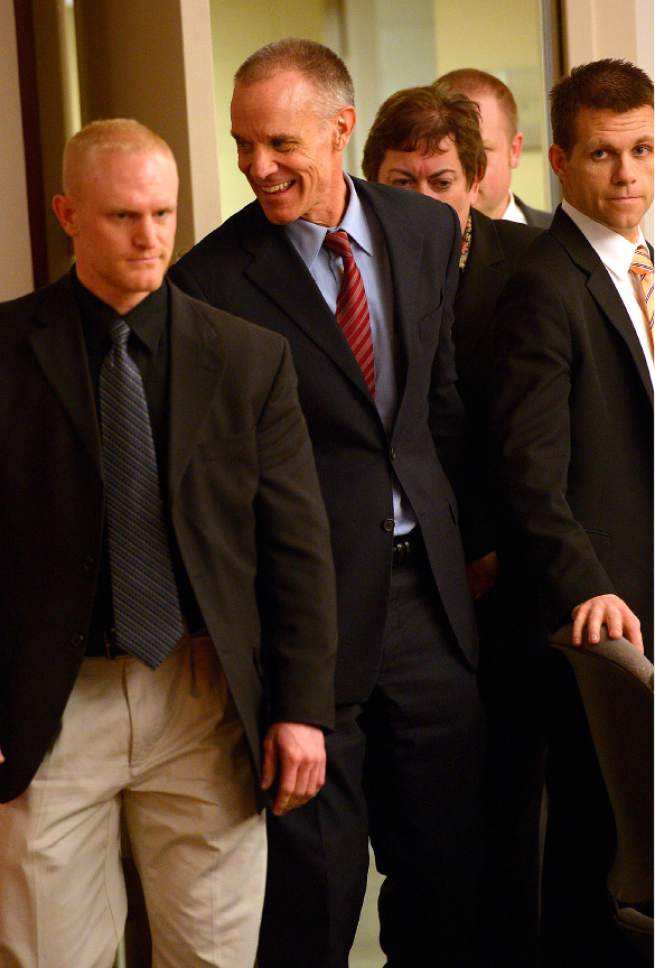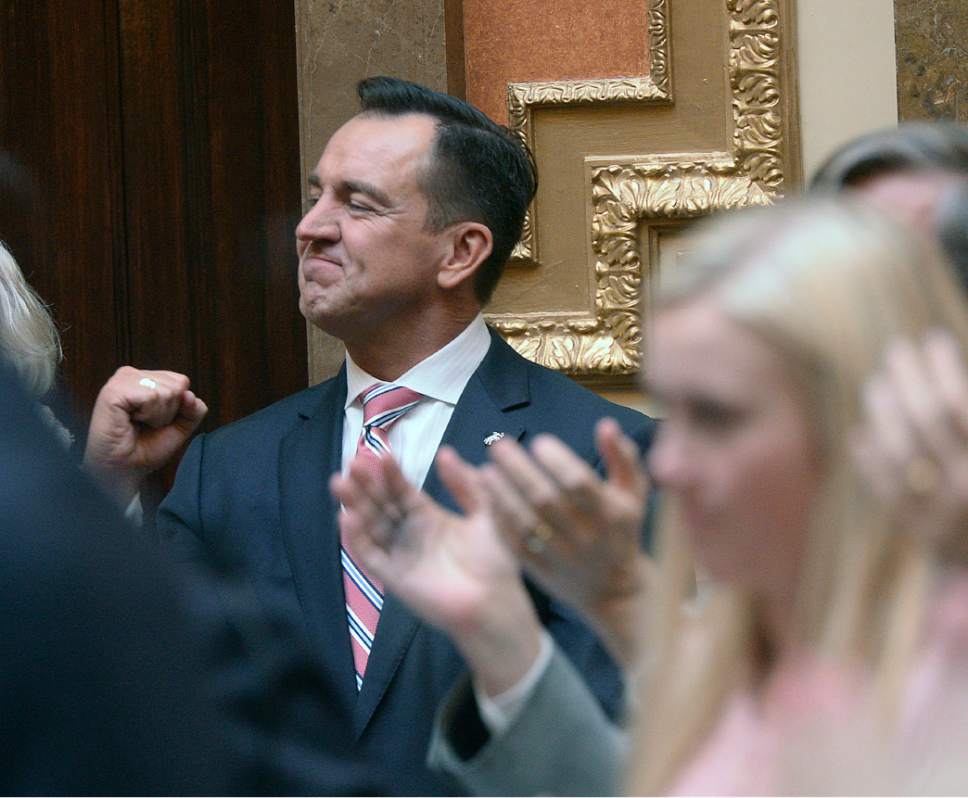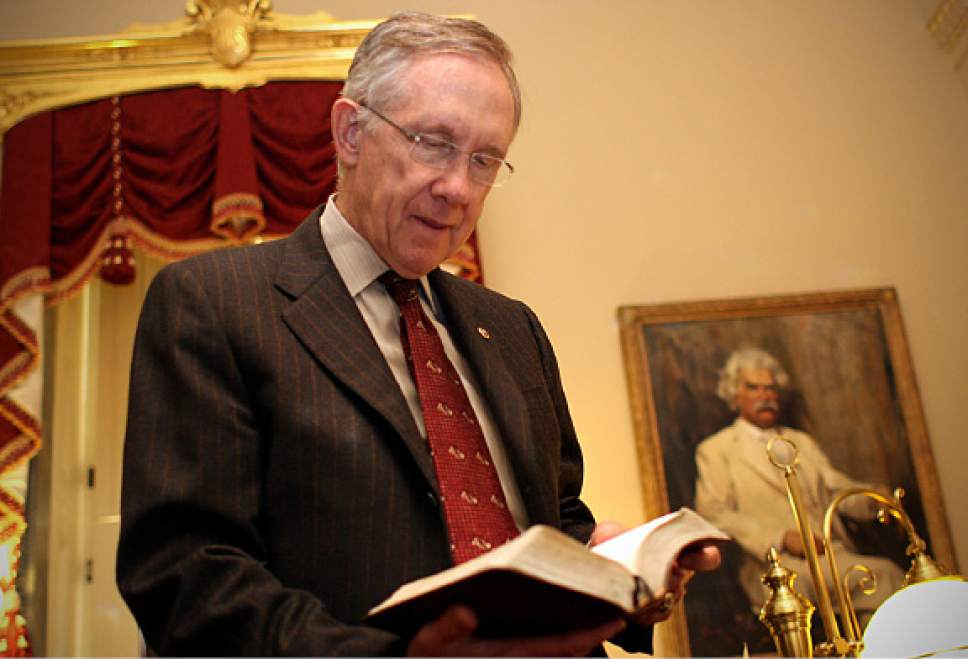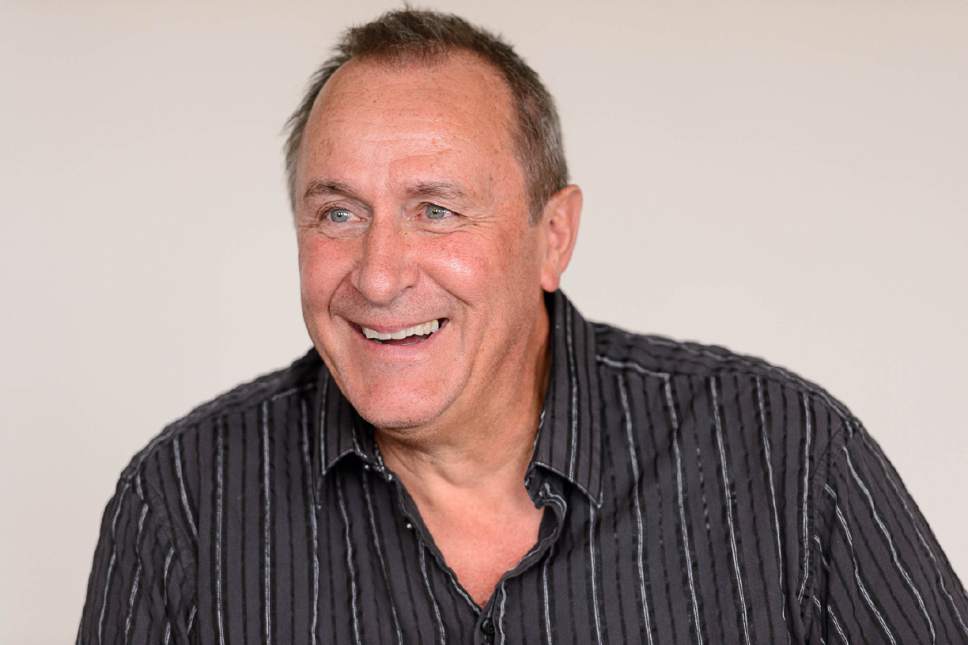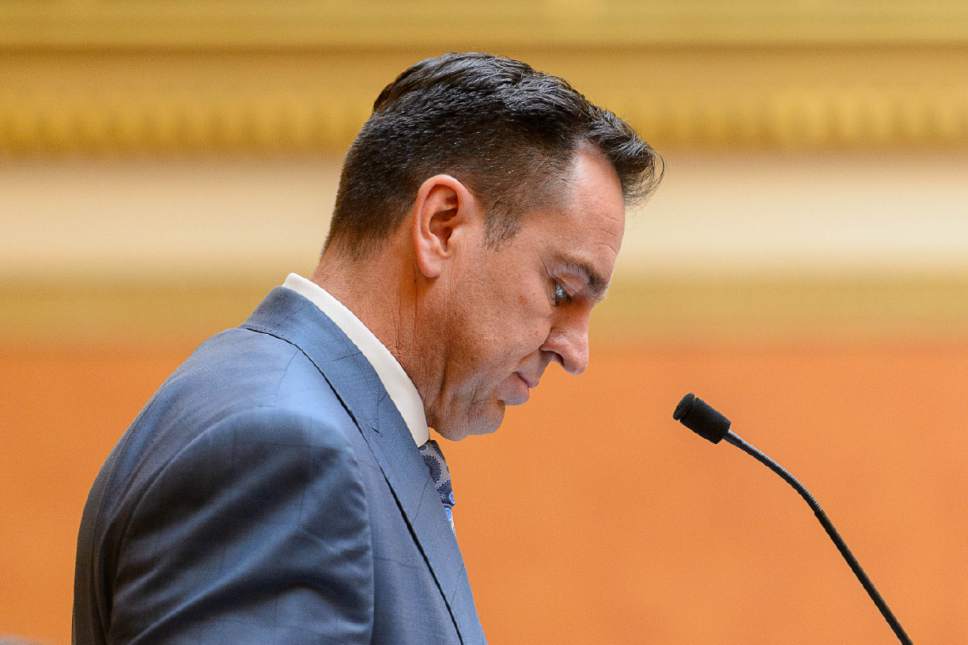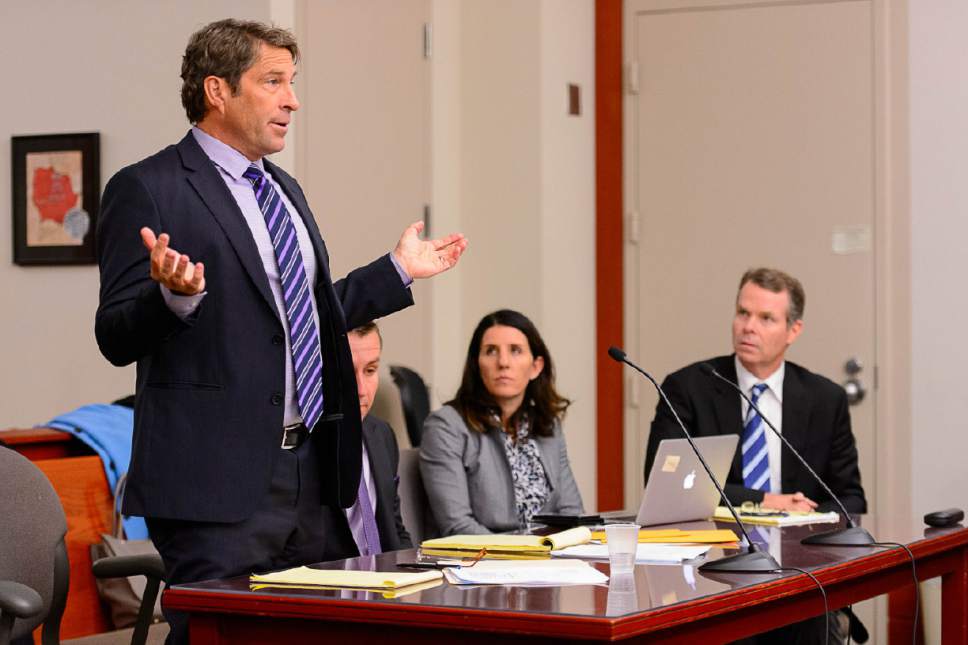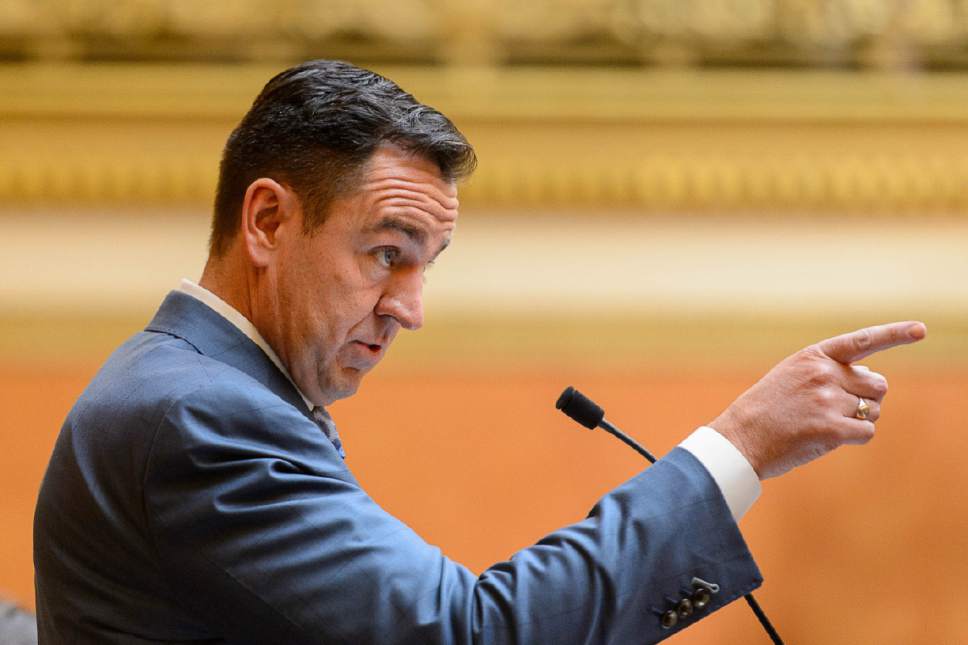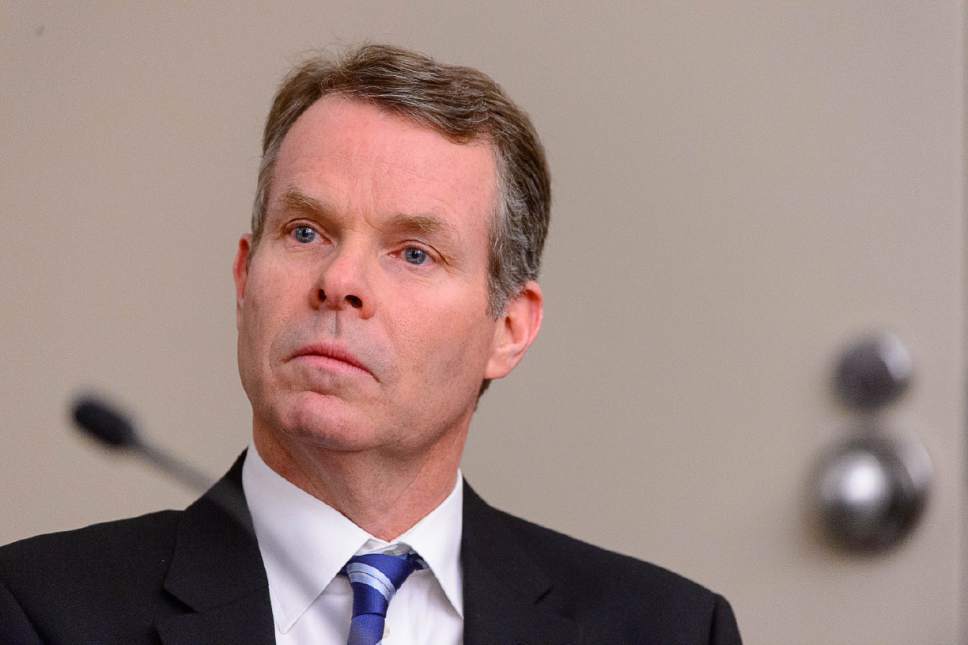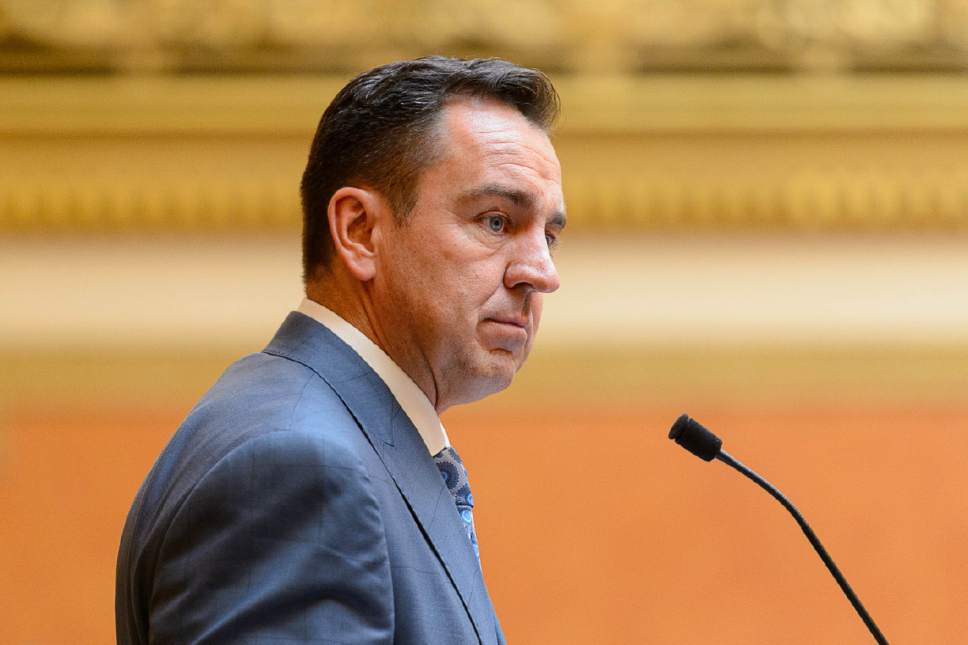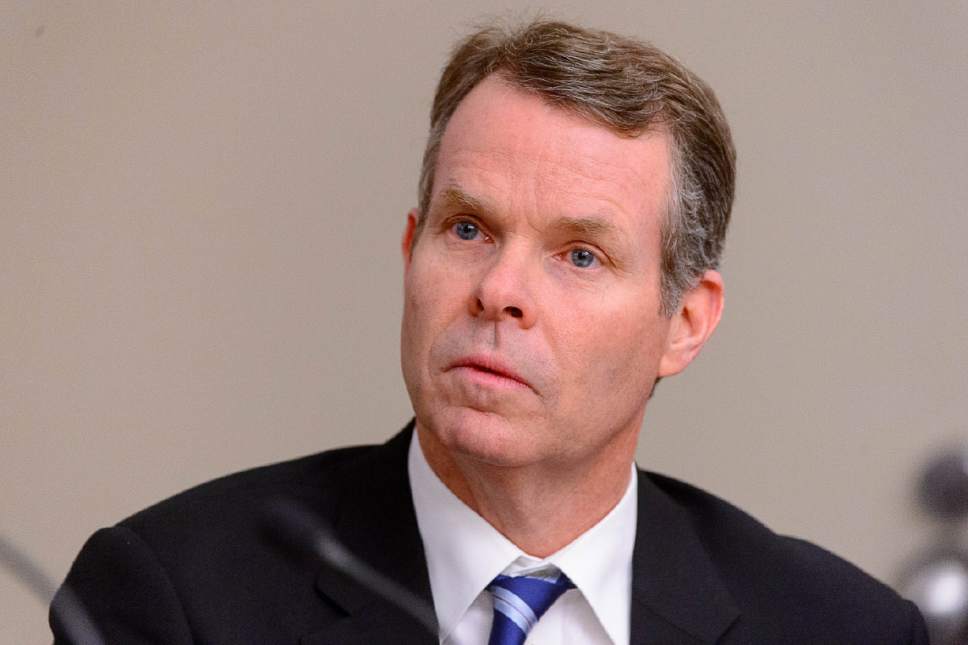This is an archived article that was published on sltrib.com in 2017, and information in the article may be outdated. It is provided only for personal research purposes and may not be reprinted.
Lawyers for former Utah Attorney General John Swallow sparred with prosecutors over a host of issues old and new in court Thursday, arguing again for dismissal — or delay — of his public corruption trial, set to begin in less than a week.
Among the issues Scott C. Williams and Salt Lake County prosecutors sought to resolve: unanswered questions about the impact the mishandling of the former Utah attorney general's private emails had on Swallow's trial; the relevance of a case investigator's disciplinary file; and the "wholly unexpected" testimony of a key witness, who last week tied the case to an alleged secret Utah Transit Authority meeting involving Utah's House speaker and retired Nevada Sen. Harry Reid.
That — along with allegations that Swallow participated in a plot to extort hundreds of thousands of dollars from a Utah businessman and hundreds of pages of newly obtained evidence — has left his attorneys unable to mount an adequate defense in the five remaining days before trial, Williams said.
"We cannot, days before what the state has said will be a four-week trial, manage the due diligence," said Williams, adding "that I think this court would understand would be incumbent on the lawyers for the accused."
Prosecutors dispute any contention that the evidence was provided late or that information Williams now says raises questions hasn't been available for months.
And they disputed the defense's suggestion that a new "extortion" theory surfaced last week, when once-imprisoned businessman Marc Sessions Jenson testified that Swallow and his immediate predecessor, Mark Shurtleff, extracted money and gifts from him.
Theft by extortion is an element of the "pattern of unlawful activity" statute — one of the crimes Swallow has been charged with since 2014 — and its relevance is well-documented in court papers, prosecutors said.
The Salt Lake Tribune reported in 2013 that Jenson accused Swallow and Shurtleff of shaking him down for cash and favors.
"This case has the longest [probable cause] statement I have ever seen," said Chou Chou Collins, a deputy district attorney for the county.
Third District Judge Elizabeth Hruby-Mills took the arguments under advisement after Thursday's five-plus-hour hearing.
Swallow has pleaded not guilty to 13 felony and misdemeanor counts of public corruption-related charges, including allegations of engaging in a pattern of illegal activity, accepting a prohibited gift, evidence tampering, obstruction of justice and bribery.
The trial is scheduled to begin Tuesday. If convicted, he could spend up to 30 years in prison.
Swallow's most recent motion to dismiss, filed late Wednesday, focused on Jenson's testimony last week.
Jenson said that Reid, House Speaker Greg Hughes, R-Draper, and UTA officials held a secret meeting in Jenson's Southern California office to discuss development projects.
He said Hughes and some UTA officials also were at Pelican Hill, the swanky seaside resort where Jenson paid the tab for Swallow and Shurtleff, while he was on probation in a securities case filed against him by Shurtleff's office.
Hughes has denied the allegations. Reid's office has not responded to requests for comment.
Williams argues he should have been provided earlier with evidence related to Jenson's allegations that prosecutors had previously stated were not relevant to the charges.
Williams also pointed to a letter from the FBI asking Davis County Attorney Troy Rawlings, who had been prosecuting Shurtleff before those charges were dismissed, to provide it with evidence related to UTA and Jenson's allegation.
A similar issue arose in the separate prosecution of Shurtleff. Williams unsuccessfully asked the court to force prosecutors to secure the UTA-related evidence last year.
Rawlings' efforts to negotiate an agreement that would see Tim Lawson, a longtime Shurtleff friend and his so-called "fixer," testify against the three-time attorney general also came up Thursday.
Investigators testified that they never tried to obtain the information that Rawlings gathered.
Lawson, who suffered from numerous health issues, died in August 2016.
Williams and prosecutors also squabbled Thursday over the relevance of disciplinary records and internal investigations of complaints about Scott Nesbitt, a Utah Department of Public Safety agent.
State attorneys said the records are either protected or irrelevant.
Williams disagreed, arguing that he knows that at least two complaints had been filed about Nesbitt's conduct related to the Shurtleff and Swallow cases.


